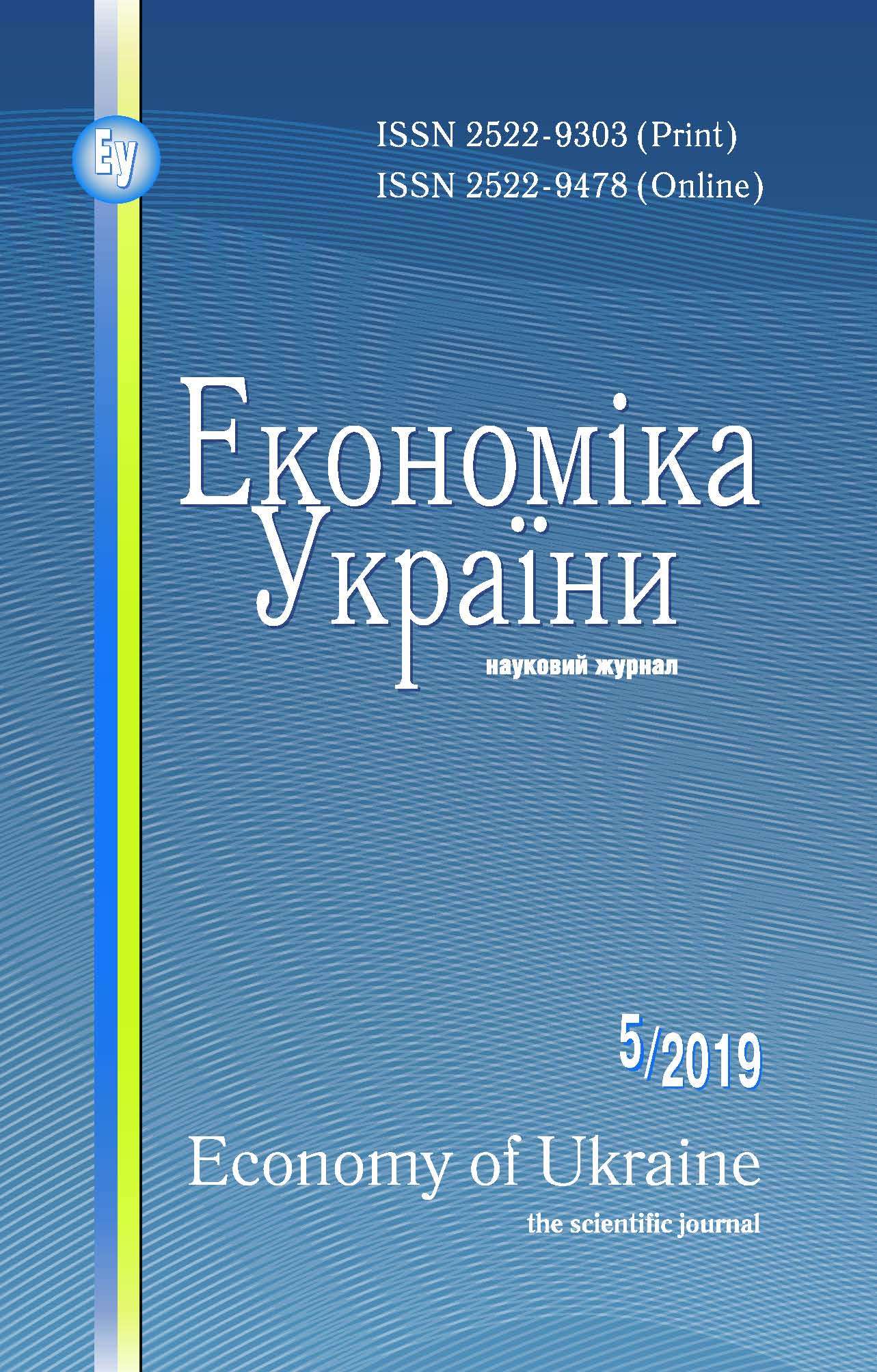UKRAINE AND THE IMF: BASIC ASPECTS OF COOPERATION
DOI:
https://doi.org/10.15407/economyukr.2019.05.006Keywords:
International Monetary Fund; IMF lending programs; stand-by loans for UkraineAbstract
Since the foundation of International Monetary Fund in 1944, this organization has evolved with the development of the global economy. Nevertheless, its mission remained unchanged – to ensure the stability of the world monetary system. Such a monetary system would allow countries to follow a single standard and would contribute to world trade, economic growth and rising of living standards across nations.
The IMF has three main functions: supervision and monitoring of the global economy and the economies of member countries (surveillance); providing financial assistance to member countries (lending); economic research and technical assistance to member countries (capacity development).
The financial resources of the Fund are based on financial contributions (quotas of each member state) and determined by the relative position of the country in the world economy. The size of the quota determines the right to vote or the weight of the country’s vote in the decision-making process of the IMF.
Today the Fund’s programs have considerably expanded and are in line with the world economy needs. The main IMF financial assistance programs are:
– Loan agreement “stand-by” (SBA);
– Extended Lending Facility (EFF);
– Flexible Credit Line (FCL);
– the Precautionary and Liquidity Line (PLL);
– Rapid Financing Instrument (RFI).
In October 2018, the IMF and Ukrainian authorities announced the launch of a new SBA program, which should replace the existing program. However, to start the program, the Parliament had to approve the budget within the framework of the program. Other conditions were the creation of a permanent mechanism for adjusting gas prices for the population and strengthening the fight against corruption.
References
Petryk O. Programy MVF: dosvid okremykh krain ta perspektyvy dlya Ukrainy [IMF programs: experience of individual countries and perspectives for Ukraine]. Zhurnal Evropeis'koi ekonomiky - Journal of the European Economy, 2017, Vol. 16, No. 4 (63), pp. 480-503 [in Ukrainian].
Stiglitz J. Globalization and Its Discontents. N.Y., Norton Print, 2002.
Sachs J. The IMF is a power unto itself. The Financial Times, 1997, 11 December.
Korablin S. Navishcho nam groshi MVF? [Why do we need the IMF money?]. Dzerkalo Tyzhnia - Mirror Weekly, 2016, No. 30 [in Ukrainian].
Khan M., Sharma S. IMF conditionality and country ownership of programs. IMF Working Paper No. 01/142, Washington, DC, IMF, 2001.
doi.org/10.5089/9781451856255.001
Downloads
Published
How to Cite
Issue
Section
License
Copyright (c) 2024 Economy of Ukraine

This work is licensed under a Creative Commons Attribution-NonCommercial-NoDerivatives 4.0 International License.



